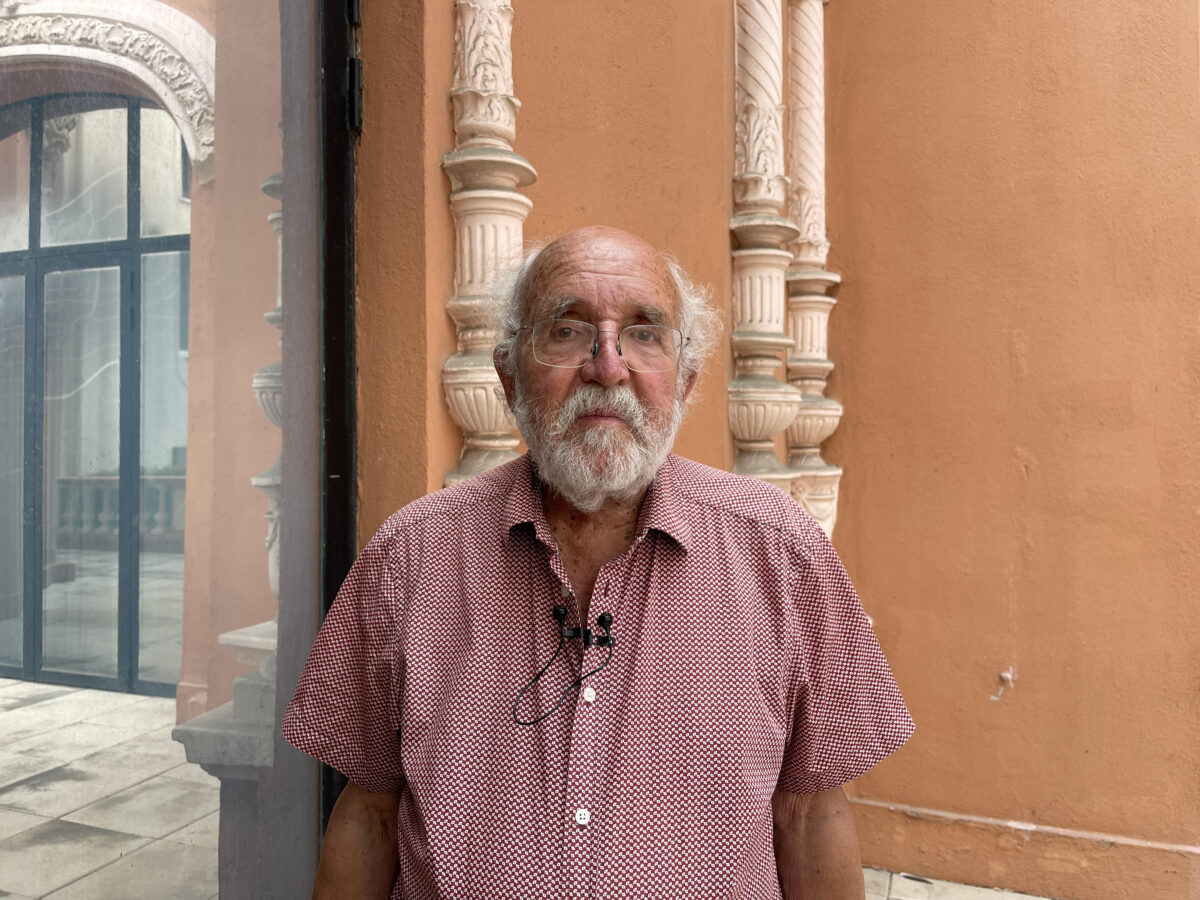Nobel Prize in Physics in 2019, the Swiss astrophysicist was in Nice yesterday to give a lecture on astronomy. It was an opportunity to look back on his remarkable career, driven by a brilliant passion.
Born in Switzerland, in the Canton of Vaud, he first studied physics at the University of Lausanne and then turned to astrophysics in Geneva a few years later. He completed his doctoral thesis on the spiral structure of galaxies. This work was one of the catalysts for his passion for astronomy and the cosmos, which notably led him to study the movement of stars. A university professor, director of the Geneva Observatory, the octogenarian had a lively career. Since the 2010s, Mayor has been retired but continues some work. Much like his participation in the discovery of the first exoplanet, which earned him a Nobel Prize in Physics in 2019.
Where did your passion for astronomy come from?
At the risk of disappointing you, as a child, I was much more passionate about science than astronomy. When I went into theoretical physics and graduated, I was lucky to find a place in this field. I curiously tried it, liked it, and then stayed. It’s as simple as that.
You won a Nobel Prize in Physics in 2019; what does that mean to you?
Obviously, it’s impossible to say I’m indifferent to it, given what this prize represents. Among all scientific awards, I don’t think it is matched; the Nobel is still a step above. It is, of course, a great pride to be recognized for our work, especially after 24 years. You should know that they often award it only thirty years later to ensure that the research has a real impact. This is the case for us, as today, thousands of people work on exoplanets.
Given the importance that the city of Nice places on teaching and sharing knowledge in astronomy, do you think this should be the case everywhere else?
It’s very important to consider this because astronomy education did not exist before, at least in my time. Nowadays, we are inundated with wonderful programs that stimulate our interest in astronomy, though it’s not equivalent to a class. The advantage of a classroom is to provide a framework for learning. Indeed, I think it would be good to find a slot to teach young people more, especially since it’s a very interesting field, and many share my view.
Given your numerous lectures, you must have critics who are likely to contradict your ideas. What do you think of them?
I must be lucky, even privileged, because I have very few. It’s very rare, it might have happened once or twice that someone asked me, “what’s the point,” for example. It’s really minimal.
Why does our society need science today?
I think society would be frightfully dull if we lost the interest we have in science, even when researching non-vital matters. It would be wrong to only consider what is useful, as it’s always very enlightening to know what stars are composed of, knowing they are above us every day, for instance.
Having studied both, are science and astronomy then complementary?
The answer is obvious because society heavily and evidently depends on fundamental science. It has led to today’s greatest advancements and new technologies. When Carl Runge studied the impact of electrons on a layer of phosphorus, he didn’t think it would lead to X-rays of broken bones, just as Einstein’s general relativity led to today’s GPS. It’s everywhere and all the time.


